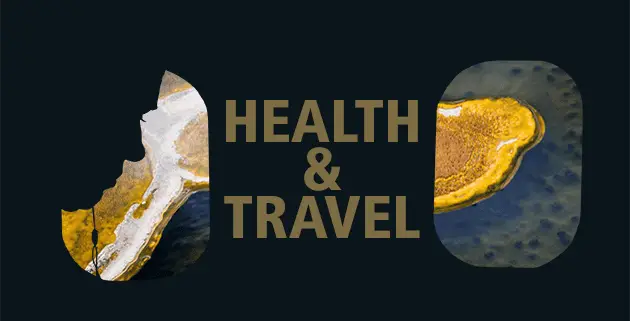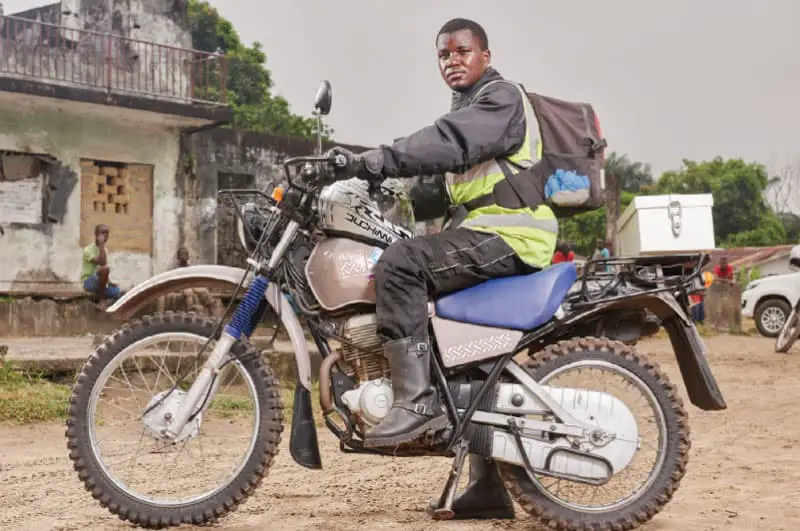All You Need to Know about Malaria and Antimalarials
Of the 460 Anopheles genus of mosquito, over 100 species can transmit human malaria. However, only 30–40 of these — and only females of those species — can transmit malaria parasites (Plasmodium) in endemic areas. Anopheles arabiensis and funestus are the most common vectors of malaria in sub-Saharan Africa, stretching from Senegal to Ethiopia, Angola, Madagascar, and South Africa.

In this article, Dianne Kokkonidis of Wild Wing Safaris shares advice for overseas travellers to malaria-risk areas, with specific relevance to South Africa.
A for Awareness
First, the good news; South Africa is largely malaria-free. The warm and humid environments preferred by the malaria-transmitting mosquito are contained to the northern perimeters of Limpopo and Mpumalanga, and the far northeast of KwaZulu Natal.

The Health GIS Centre indicates antimalarial medication for visitors to these areas between September and May. From June to August, however, when the risk of contracting malaria is negligible, no chemoprophylaxis measures are indicated.
B for Bite Prevention
While antimalarial drugs reduce the chances of contracting malaria if bitten by a mosquito carrying the malaria parasite, they do nothing to prevent insect bites. As such, all travellers to South Africa, whether to malaria-risk areas or not, should take precautionary measures against mosquito bites.
Long-sleeved shirts and long trousers, particularly between sunset and sunrise, minimize the chances of being bitten. The application of a good mosquito repellent to any remaining exposed areas of skin is another effective measure to prevent bites.
C for Chemoprophylaxis
Although over the counter Malanil, Mozitec and Malateq are generally safe and effective in preventing malaria, there are certain instances when these products may not be a suitable option.
A traveller will need to consult a doctor if they:
- are allergic to atovaquone or proguanil hydrochloride;
- suffer from severe kidney impairment;
- weigh less than 40 kg;
- are pregnant or likely to become pregnant soon;
- are breastfeeding;
- are taking a medicine containing rifampicin, rifabutin, tetracycline metoclopramide or indinavir;
- are taking an oral anticoagulant;
- are planning to go scuba diving.
Schedule II drugs
In a move to make malaria prophylaxis less expensive and more accessible, South Africa’s Medicines Control Council downgraded Malanil, and its generic equivalents, Mozitec and Malateq, to a Schedule II drug.
Now that it’s cheaper and easier for travellers to buy antimalarial drugs over the counter, what advice should tour operators give overseas travellers to malaria-risk areas in South Africa?
“The same advice as before,” says Willie van der Merwe, B.Pharm, from Clicks Pharmacy in George. “The risk of contracting malaria hasn’t changed,” he explains, “and neither have the ABC’s of malaria prevention. Even if you can purchase antimalarials in South Africa without a doctor’s prescription, the best way to prevent malaria is to avoid being bitten.”
FAQs
To dispel commonly held myths and misconceptions about malaria and antimalarials, we asked van der Merwe a couple of pertinent questions:
Q: Is it true that antimalarial drugs make it more difficult for doctors to diagnose malaria?
A: “No. The chances are very slim, but if you do happen to contract malaria while taking chemoprophylaxis, it will simply take the malarial parasite longer to multiply. In other words, it will take longer for the symptoms to appear.”
Q: How will I know if I have malaria?
A: “Malaria symptoms are similar to the flu’s – high temperature, chills, headache, lethargy, loss of appetite, nausea and vomiting; sometimes even a cough. If you develop any flu-like symptoms after having visited a moderate or high-risk malaria area at any time within the previous six months, consult a doctor immediately.”
Q: Can I stop taking my antimalarial drugs when I leave the area?
A: “No. Most antimalarial chemoprophylaxis springs into action if, and when, the malaria parasite enters the red blood cells. It generally takes 10 to 14 days after being bitten by an infected mosquito for the parasite to get there.
“You won’t have sufficient prophylaxis in your red blood cells to fight the parasite if you stop taking the drug before then. You need to continue taking your prophylaxis for one month after leaving the malaria-risk area.
“Because it acts on the tissue stage, Malanil is an exception. You will only need to continue your course for one week after leaving the at-risk area.”
Q: Is Malaria incurable?
A: “No. You do, however, need the help of a professional medical practitioner to identify what treatment is appropriate for you. Resistance to certain drugs, your age and personal medical history will play an important role in identifying the most effective way to treat the disease.”
Q: Aren’t the side effects of antimalarial drugs worse than the disease?
A: “No. All medication has side effects. By far and large, most people don’t experience negative side effects with antimalarial medication. Those who do experience side effects have described them as tolerable. If you have a complicated medical history or are planning to take your children on safari with you, discuss your concerns with your medical practitioner.”
Q: When should I take the pills; in the morning or at night?
A: “It’s entirely up to you. Although, by most accounts, it’s probably best you take your medication before going to sleep at night. That way, if you do experience any negative side effects such as possible dizziness, you’ll hopefully sleep through them and be ready to enjoy your day when you wake up the next morning.
“South Africa is largely malaria-free. The warm and humid environments preferred by the malaria-transmitting mosquito are contained to the northern perimeters of Limpopo and Mpumalanga, and the far northeast of KwaZulu Natal.
“The Health GIS Centre indicates antimalarial medication for visitors to these areas between September and May. From June to August, however, when the risk of contracting malaria is negligible, no chemoprophylaxis measures are indicated.”
Q: What is the best advice for overseas travellers to malaria-risk areas?
A: “Consult a medical professional at your local travel clinic before coming to South Africa. Even if you can buy antimalarials over the counter in South Africa, the pharmacist still needs to assess if you’re a suitable candidate. And if you’re not because you’re taking warfarin, for example, you’ll need to consult a doctor about other options.”
Q: If I take chemoprophylaxis, do I still have to use insect repellent?
A: “Yes. Chemoprophylaxis massively reduces the chances of contracting malaria but will not repel mosquitoes. You should still use insect repellent and sleep under mosquito nets,” concludes van der Merwe.
About Wild Wings Safaris: With offices in the UK (London) and South Africa, Wild Wings Safaris arrange custom safaris to all the top safari destinations throughout Southern and East Africa, including the Kruger National Park, Sabi Sand Game Reserve, Victoria Falls, Chobe National Park, Okavango Delta, Serengeti, Ngorongoro and more.
For more information visit wild-wings-safaris.com





